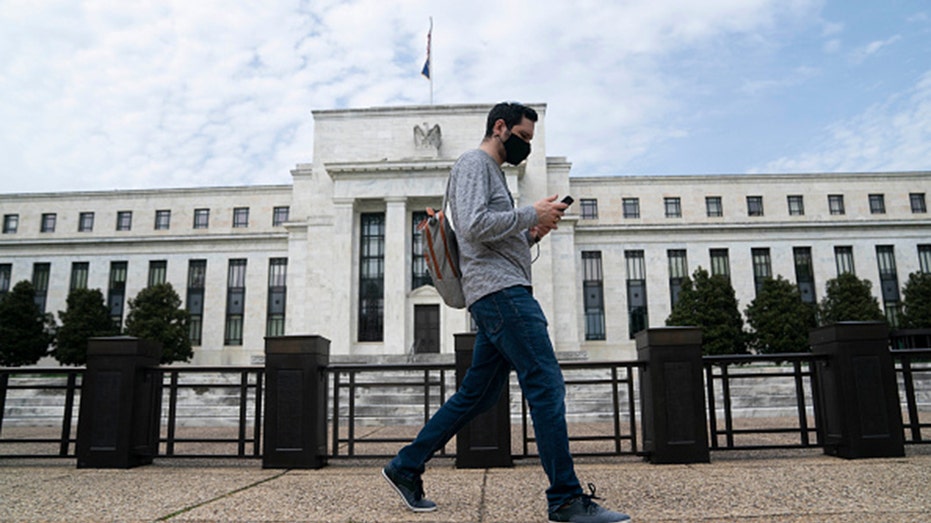Goldman Sachs forecasts 35% chance of a recession in next 2 years
Analysis comes as the Fed takes a more hawkish approach to fighting inflation
The Fed's rate hikes 'not in your favor': Expert
Macro Intelligence 2 Partners co-founder Julian Brigden explains why he's unsure whether the Federal Reserve can get inflation under control and avoid a recession.
The Federal Reserve may inadvertently trigger an economic recession next year as it moves to tame the hottest inflation in four decades, according to Goldman Sachs economists.
The economists, led by Jan Hatzius, said in an analyst note that the expected policy tightening trajectory the U.S. central bank is about to embark on raises the odds of a recession to 15% in the next 12 months and 35% within the next 24 months. Hatzius noted that 11 of the 14 tightening cycles since World War II have been followed by a recession within two years, though only eight of them can be partially attributed to Fed policy. Soft, or "softish," landings have become more common recently.
"Taken at face value, these historical patterns suggest the Fed faces a hard path to a soft landing as it aims to close the jobs-workers gap and bring inflation back towards its 2% target," Hatzius wrote.
US ECONOMY FACING 'MODEST' RECESSION NEXT YEAR: FANNIE MAE
The analysis comes as the Fed takes a more hawkish approach to fighting inflation, which is at the highest level since December 1981. Policymakers raised rates by a quarter-percentage point in March, and have since signaled support for a faster, half-percentage point increase at their May meeting.

In this Dec. 1, 2020 file photo, Federal Reserve Chair Jerome Powell listens during a Senate Banking Committee hearing on Capitol Hill in Washington. (Al Drago/The New York Times via AP, Pool / AP Newsroom)
Traders are now pricing in more than a 95% chance of a hefty half-point rate jump when policymakers meet next month.
"If we conclude that it is appropriate to move more aggressively by raising the federal funds rate by more than 25 basis points at a meeting or meetings, we will do so," Federal Reserve Chairman Jerome Powell said in March. "And if we determine that we need to tighten beyond common measures of neutral and into a more restrictive stance, we will do that as well."
Some economists believe the Fed waited too long to confront the burst in inflation, while others have expressed concerns that moving too quickly to stabilize prices risks triggering an economic recession. Hiking interest rates tends to create higher rates on consumer and business loans, which slows the economy by forcing employers to cut back on spending.

A man wearing a mask walks past the U.S. Federal Reserve building in Washington D.C., the United States, on April 29, 2020. ((Xinhua/Liu Jie via Getty Images) / Getty Images)
Still, Powell has pushed back against concern that further tightening by the central bank will trigger a recession and has maintained optimism that the Fed can strike a delicate balance between taming inflation without crushing the economy.
GET FOX BUSINESS ON THE GO BY CLICKING HERE
"The probability of a recession in the next year is not particularly elevated," Powell told reporters during the Fed's March meeting, citing the strong labor market, solid payroll growth and strong business and household balance sheets. "All signs are that this is a strong economy, and one that will be able to flourish in the face of less accommodative monetary policy."





















